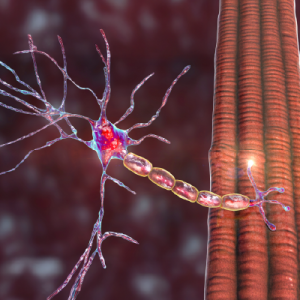How to Diagnose Duchenne Muscular Dystrophy (DMD)?
A diagnosis of DMD is made based upon a thorough clinical evaluation, a detailed patient history, and a variety of specialized tests, including molecular genetic tests.
Blood tests may reveal elevated levels of the creatine kinase (CK), an enzyme that is found at abnormally high levels when muscle is damaged. The detection of elevated CK levels can confirm that muscle is damaged or inflamed but cannot confirm a diagnosis of DMD.
Specialized blood tests (e.g., creatine kinase) that evaluate the presence and levels of certain proteins in muscle (immunohistochemistry) are used.
Molecular genetic tests involve the examination of DNA to identify disease-causing variants in the DMD gene.
Biopsy is indicated if the genetic tests are not informative. This involves surgical removal and microscopic examination (biopsy) of affected muscle tissue to find any histopathological changes within the cells and muscle fibers.
Specialized Muscle Biopsy: In some cases, a specialized test can be performed on muscle biopsy samples that can determine the presence and levels of specific proteins within cells.
Antibody Testing: Various techniques such as immunostaining, immunofluorescence, or Western blot (immunoblot) can be used. These tests involve the use of certain antibodies that react to certain proteins, such as dystrophin.





 Appointment
Appointment WhatsApp
WhatsApp Call
Call More
More